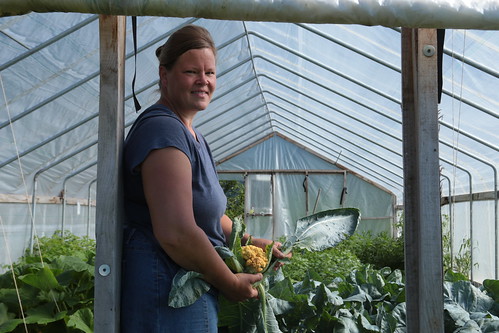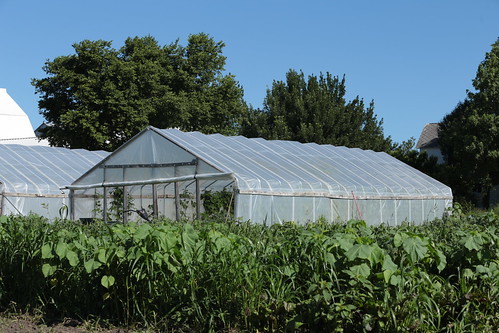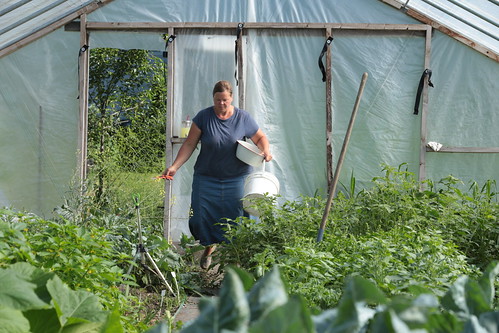
Somewhat hidden in Livingston County, Illinois is a five-acre farm that is reminiscent of farms years ago. With assistance from the USDA Natural Resources Conservation Service (NRCS), the farm is able to maintain a diversified operation with agritourism features and run a CSA – or Community Supported Agriculture.
A CSA is a way for consumers to directly invest in local farms, like Beth and Doug Rinkenberger’s Garden Gate Farms, and receive a regular delivery of fresh fruits and vegetables.
Once a dairy farm, they now grow vegetables, raise turkeys, pigs, and chickens, and house cows for a neighboring farmer. New members of Stewards of the Land, LLC – where local farmers pull together their produce and meats to sell at farmer's markets, local food shops and grocery stores, and to high-end restaurants across the area – they became friends with Terry Bachtold, who also works for the Livingston County Soil and Water Conservation District, a close partner of NRCS.
Bachtold encouraged the Rinkenberger’s to apply for NRCS’ Environmental Quality Incentives Program (EQIP) cost-share program to build a high tunnel, which was installed in June 2014.

“I started about four years ago with a small CSA,” said Beth, “and we are up to almost 20 members now.” She is excited with the high tunnel because as time goes on they will be able to offer customers vegetables as early as March or April. “It’s just amazing to me.”
Right now Beth is doing what she calls field trials. Determining what she can plant, when to plant it and how it grows. The early plantings are for their CSA customers. The Rinkenberger’s also discovered there is a strong market for root vegetables so they installed a large cooler to store them.
Beth said the EQIP process, “was very easy and I can’t tell you how glad we are. For us, and our goals as a farm.” The high tunnels will help increase accessibility of the vegetables, and ultimately profitability. “This will make a big difference for us to extend our season,” she said, “Especially if we can grow through the winter.”
In December, they picked 85 pounds of kale from the high tunnel. At four dollars a pound, that’s a nice bit of cash. She says they are always learning. To keep the weeds down, Beth says she just keeps hoeing and adds mulch. She puts down a layer of newspaper and straw over the top. By the next season, what’s left has started to decay and improve the soil.
Beth sees the agritourism movement is growing in Livingston County. The Rinkenberger’s host farm tours for daycare and kindergarten classes. “We are farmer Doug and farmer Beth,” she said, “that’s what they call us.”
Many of the local CSA members prefer to come to the farm to pick up their boxes rather than have them dropped off at a closer location. Beth knows they just want to come out and see the different activities happening on the farm. “And that’s our reward,” she said, “low-key agritourism style.”
Beth likes what’s going on in Livingston County and Chicago and other places where there’s a recognition of the value of their farm. She adds, “And I like that my kids, and now my grandkids, know how to raise and grow and survive because of what we’ve taught them.”


